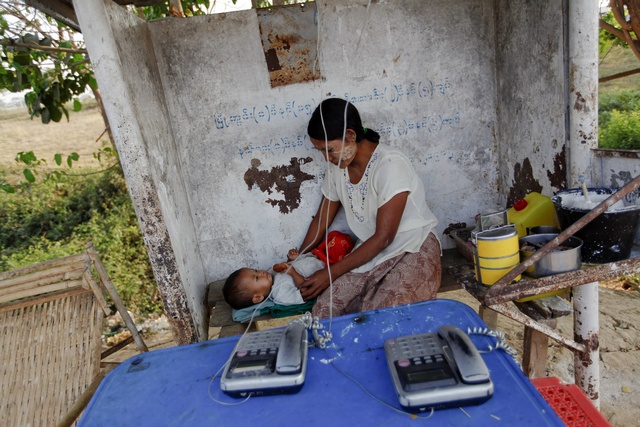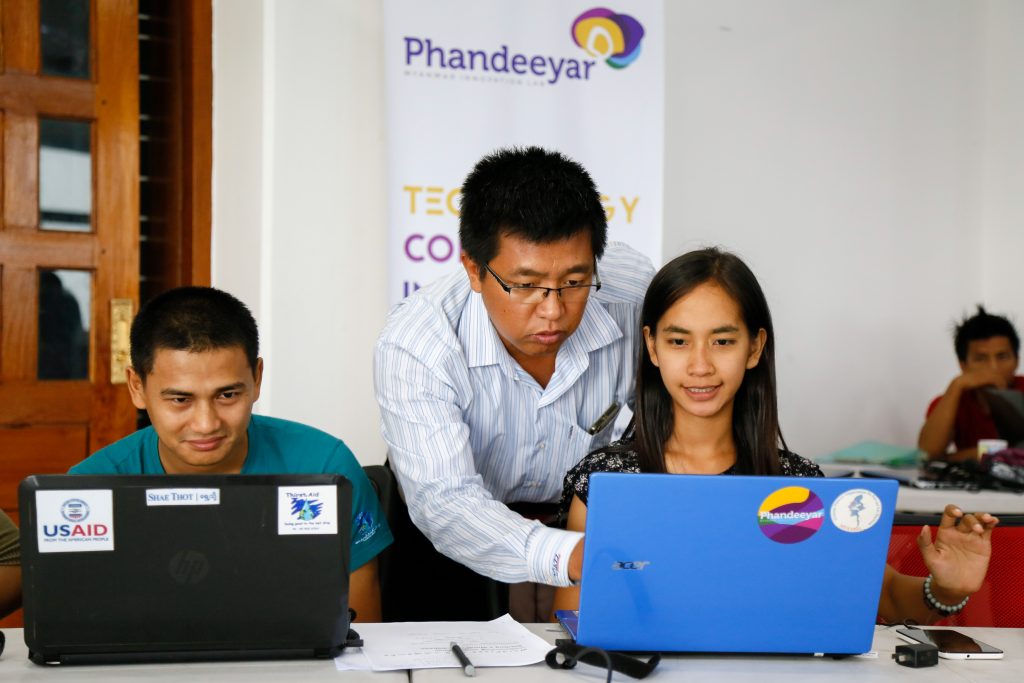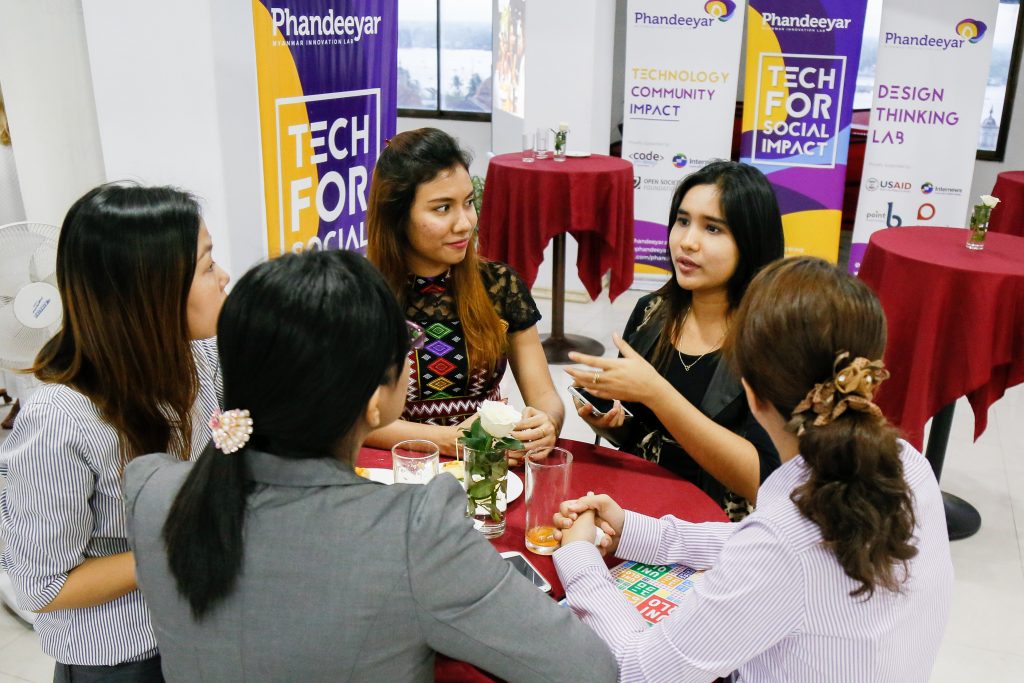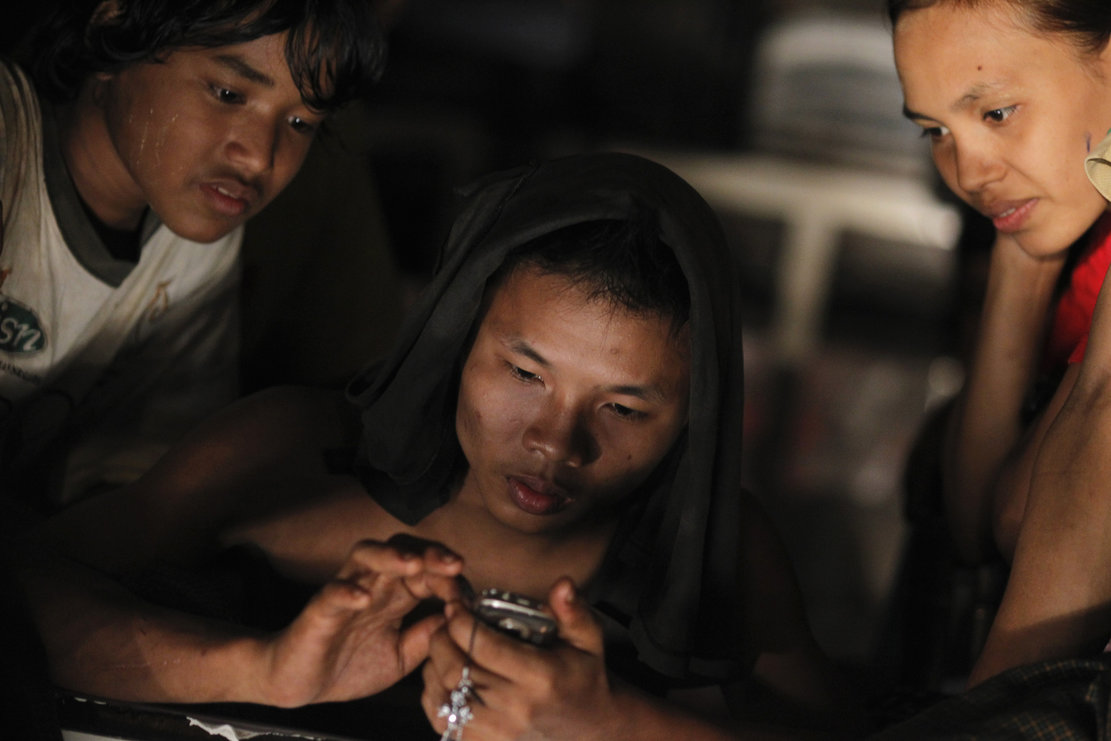[dropcap]B[/dropcap]urma is racing to become the first smartphone only nation and pundits are betting big on the new digital economy. Just a few years ago the country was challenging North Korea for the lowest rate of mobile phones per capita. Now, network towers are going up virtually overnight with 80 percent of the population expected to have internet-enabled mobiles by the end of 2016.
In downtown Rangoon, tech startups are multiplying as homegrown talents and returning emigrants seek to capitalise on new market opportunities.
Hillary Yee and William Min are two such people. Seeing a demand for high-end fashion and accessories, the pair launched Mystylo last week. Billed as the country’s first lifestyle curation website, Yee and Min are targeting the emergent class of professionals with fashion, exercise and cultural advice. These newly minted Burmese have countless options and opinions at their fingertips, and Mystylo is aiming to become the authority on their modern lifestyles. Items on the site are categorised in an aspirational manner under headings such as ‘Work Hard’ and ‘Sunday Funday’.

Following a stint working in Singapore where fashion influencers and websites are already well established, Min is confident with Mystylo’s point of difference.
“Lifestyle is part of who you are and, interestingly enough, in this digital world of shopping not many businesses are paying attention to the different tastes and different lifestyles of users [in Burma],” Min says. “That’s why we’re curating lifestyles with a team of talented stylists tastefully matching different items from different quality brands,” he explains.
The benefits from going digital aren’t just making waves amongst Rangoon’s nouveau riche. Across the country, mobiles are becoming a weapon against poverty as the Internet opens up new possibilities for economic, education and health development.
Burma’s struggles in maternal health are a case in point. More than 70 percent of births occur outside clinics or medical services, and the maternal mortality rate is one of the worst in Southeast Asia with 200 deaths per 100,000 births. But mobile access is now helping to change the situation.
‘Maymay’ is a relatively new app built for expectant mothers and their families in Burma. When poor access to healthcare providers has traditionally been one of the biggest hurdles throughout pregnancy, Maymay provides maternal and childcare health information. App users receive health alerts and can search for health workers and clinics in their area. Powered by telecommunications provider Ooredoo, Maymay already has over 11,000 active users and is being introduced everyday to more communities.

Such a solution makes it easy to imagine Burma is effortlessly leapfrogging from technological leprosy to leadership, unencumbered by legacy IT systems. Yet the reality is very different according to Daniel Arnaudo, a researcher focused on information and literacy skills in Burma from the University of Washington.
Most users are struggling to keep pace as Burma jumps from zero to 60 in information age. “The digital divide is a major challenge,” reports Arnaudo. “People are not only struggling to learn skills to use technology but also to understand the online world as a whole.”
A piecemeal grasp of the Internet leaves the window wide open for misunderstandings. Perhaps chief among them is the tendency for many Burmese mobile users to assume Facebook is the Internet. “A lot of people come online mistaking Facebook for the Internet,” says Arnaudo. “The big blue network is designed to control your attention and keep you within its walled garden. Programs like [Facebook-run] Internet.org, now ‘Free Basics’, only serve to blur this line by funnelling new users into Facebook’s ecosystem from day one.”
Burmese users badly need conceptual knowledge, according to Arnaudo. “[They need to learn] how to distinguish bad websites from good, Facebook from the Internet, Gmail from email. They also need to learn good security practices and what it means to be safe online.” Getting to this point will require “better programmes to build not only competence with the physical and digital technology but to teach information literacy as a whole.”

Arnaudo is part of one such programme in Burma. Called the ‘Information Strategies for Societies in Transition’, it is organised by the University of Washington. There are a host of others including Phandeeyar, a Yangon-based technology hub working on technical and social innovation projects. Also MIDO, an NGO focused on using technology to meet core development goals.
Such programmes are making an impact, but with Facebook home to an estimated 80 percent of Burma’s Internet users, its grip is tight. And where users flock, so too do businesses, startups, policymakers, publishers and anyone else interested in communicating with them. The social networking site has taken on a larger role in Burma than ever before, becoming an online retailer, storage device and email service rolled into one.
[related]
Mystylo co-founders Yee and Min have been sure to make Facebook key to their business strategy. “Facebook is the unrivalled social media platform in Burma and we believe that a strong and solid presence to engage Facebook users will drive more traffic to our platform,” says Min.
The fact that Facebook has almost a monopoly on the Internet evolution in Burma is particularly troubling for Arnaudo.
“It’s a good business model, both for Facebook and the companies that use it,” admits Arnaudo. “The problem comes when this one enterprise controls the market so completely that they prevent new enterprises from imagining the full possibilities of the Internet. Creativity is now processed through one model and people are encouraged to fit their business models within a well-defined and profitable system for Silicon Valley.”

Others are less pessimistic. David Madden, the founder of Phandeeyar, is confident about the ability of local tech startups to compete alongside Facebook and foreign rivals.
Asked about the biggest challenges for tech entrepreneurs, Madden points to infrastructure problems. “A critical issue right now is payments,” he explains. “It’s difficult for startups to monetise their products. Other issues include the difficulty of raising money and accessing credit, high property prices, poor infrastructure and services and a tight talent market.”
But Madden is confident change is underway. “The biggest challenges that local tech entrepreneurs used to face were woeful connectivity and the lack of a local market but both of these things are improving.”
Min too is optimistic for future of Mystylo. “We are focused on providing the best user experience. Helping to curate lifestyles is something that impacts millions of users and keeps us inspired and motivated.”



